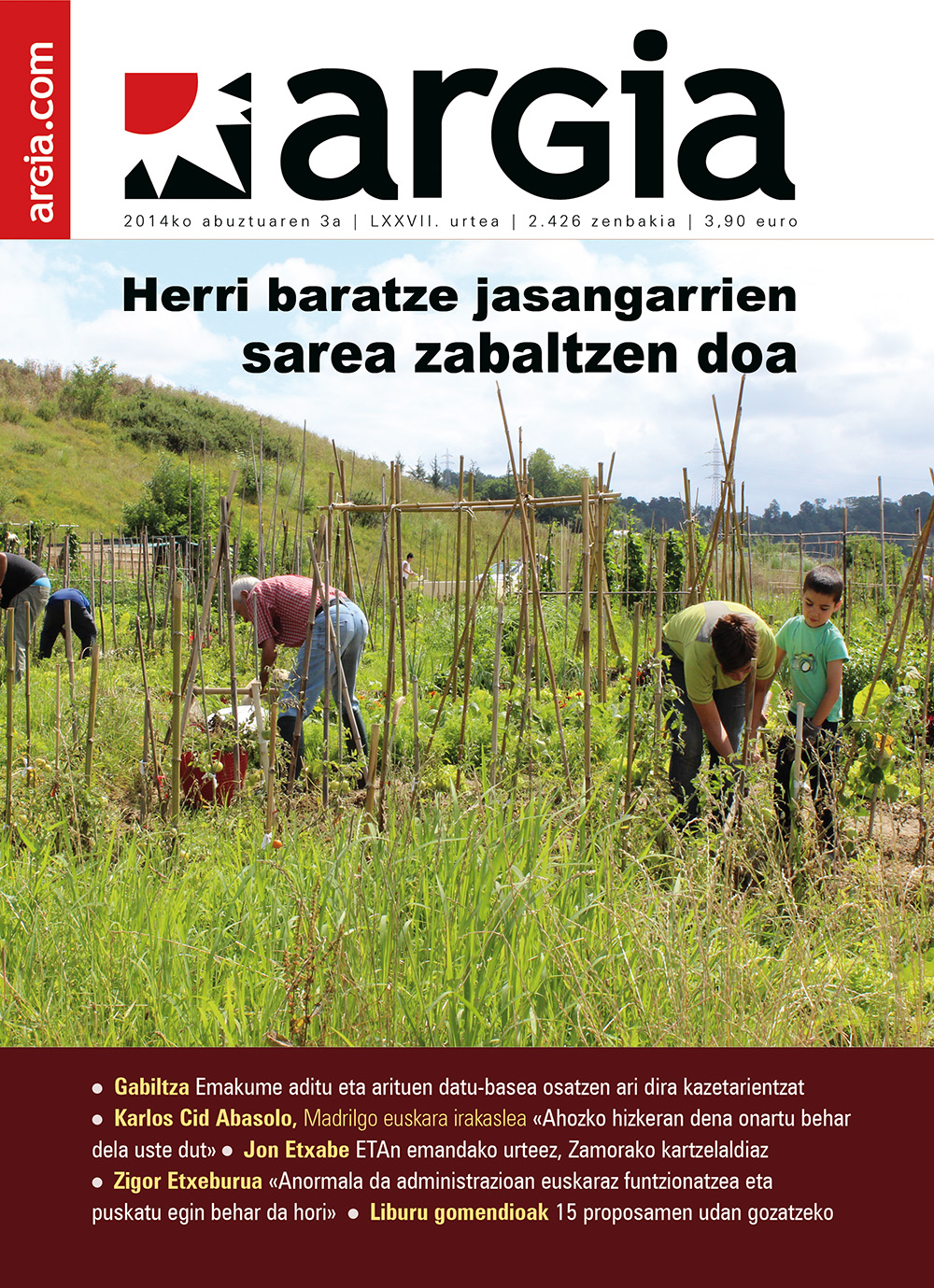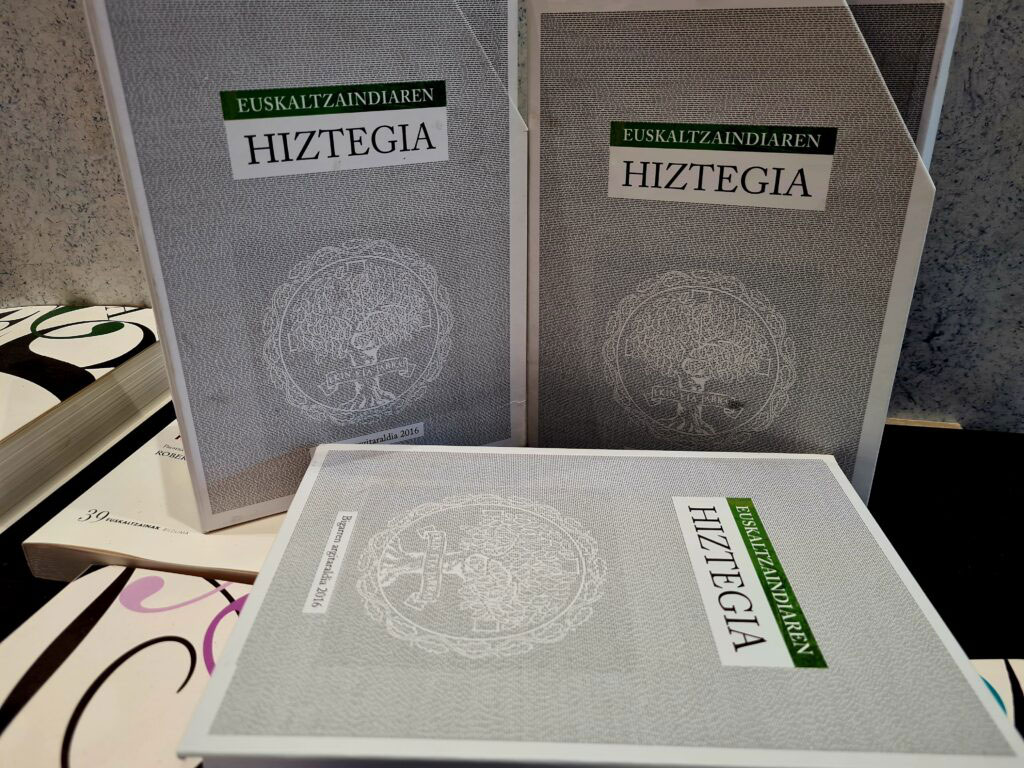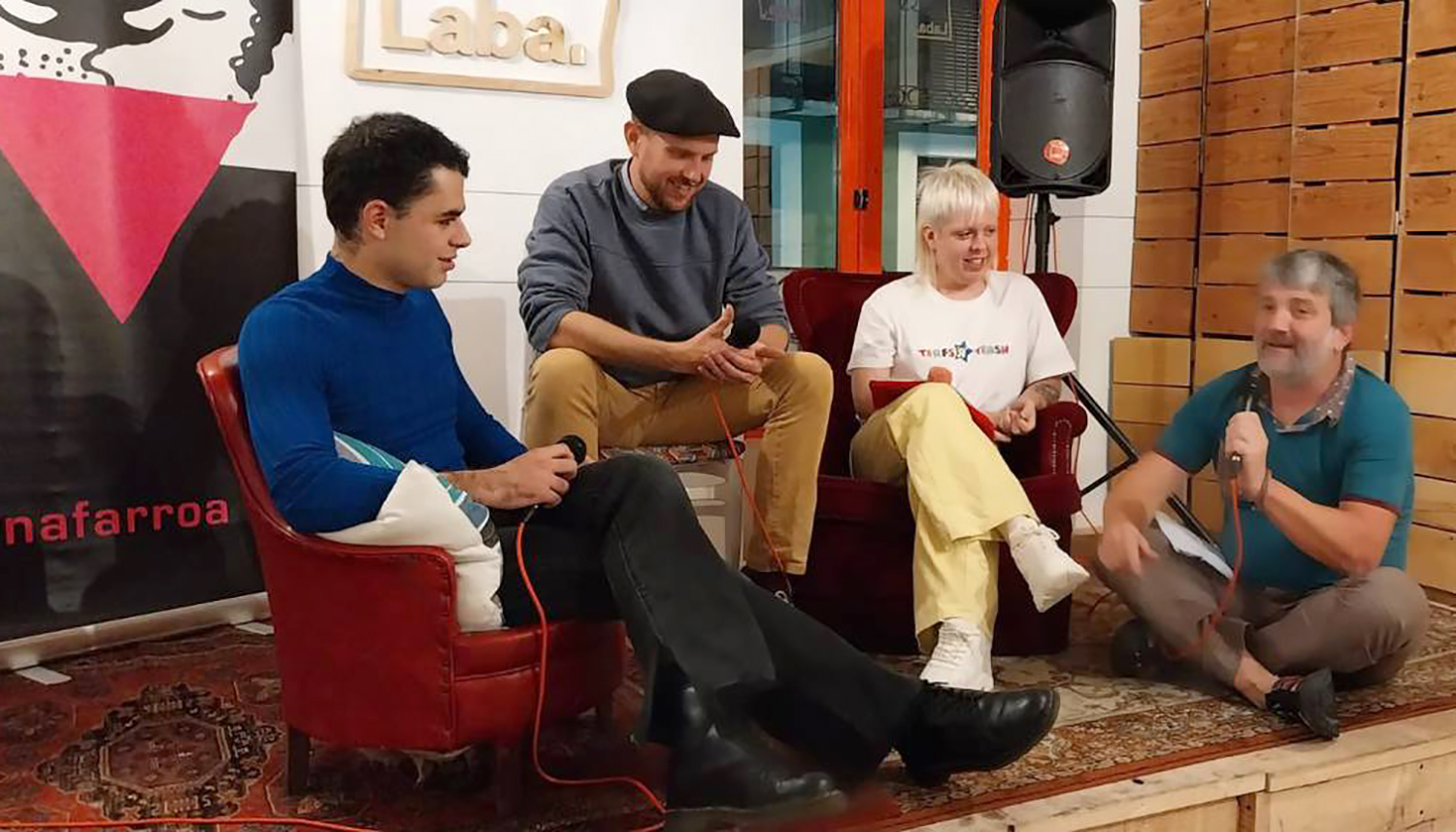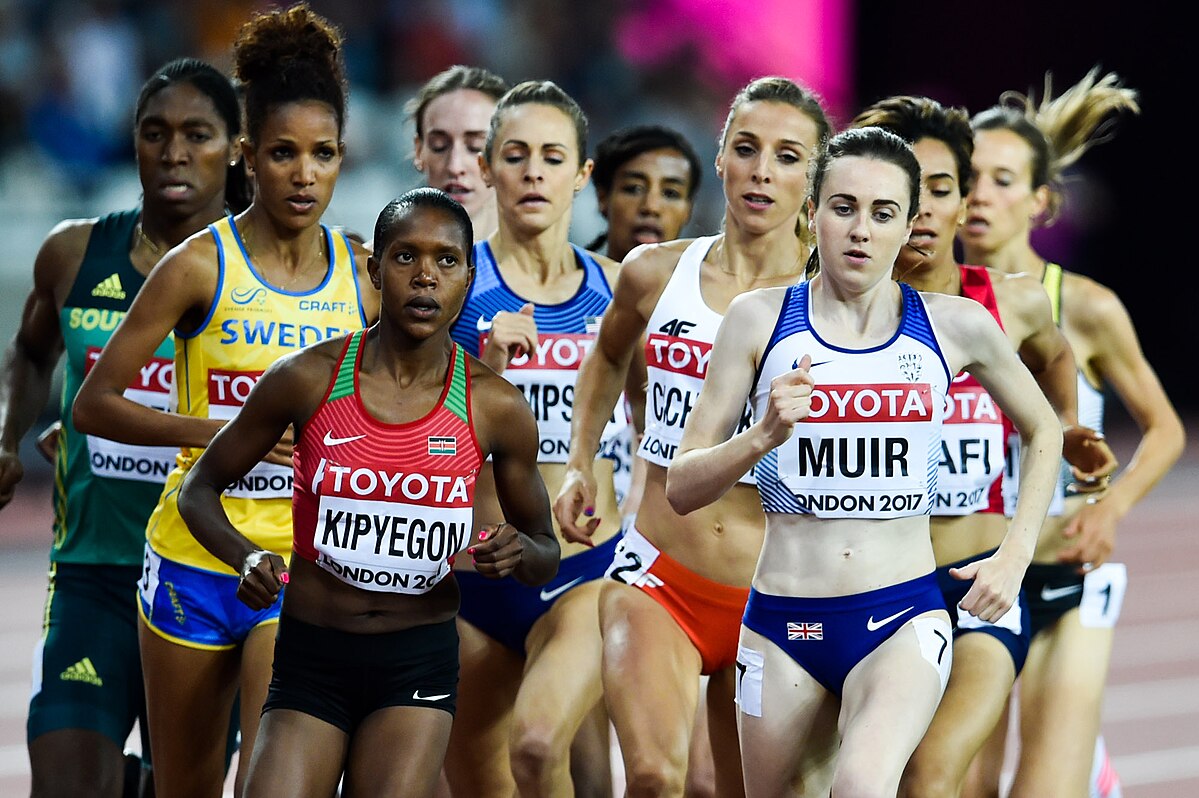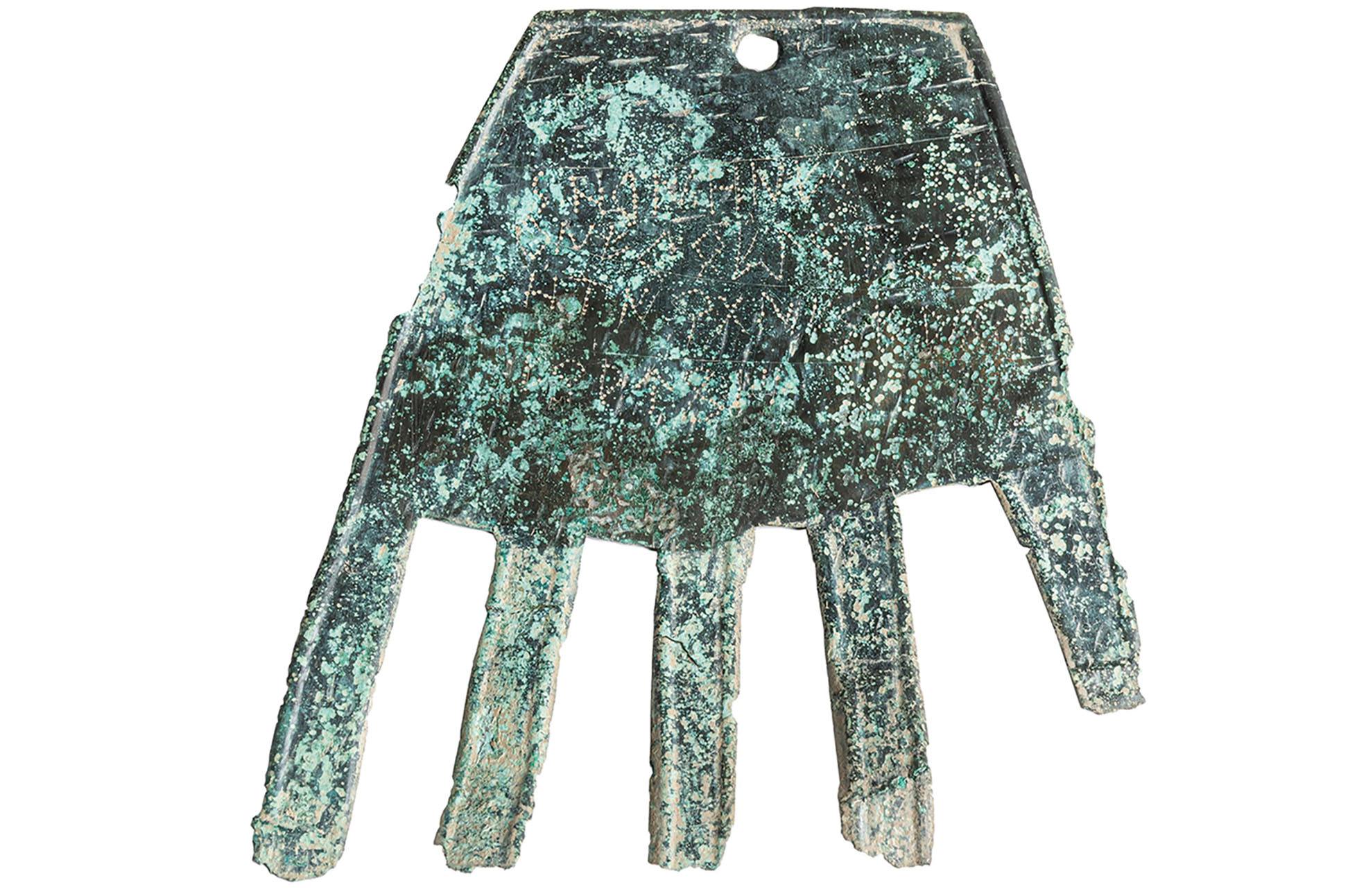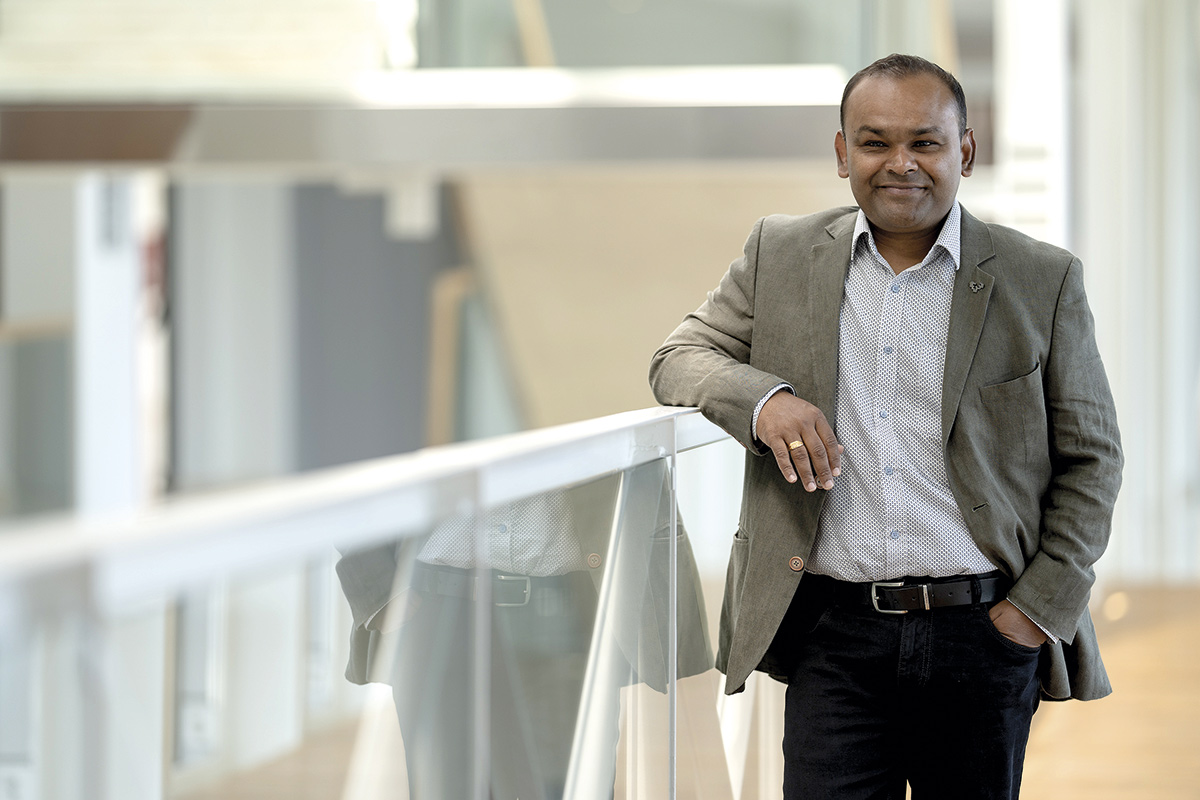"I wish there were less exoticism and a more balanced linguistic situation"
- Sometimes it seems that there are things that look more clearly out there than inside. Speaking with Madrilenian Karlos Cid about the Basque Country, you get to that feeling.
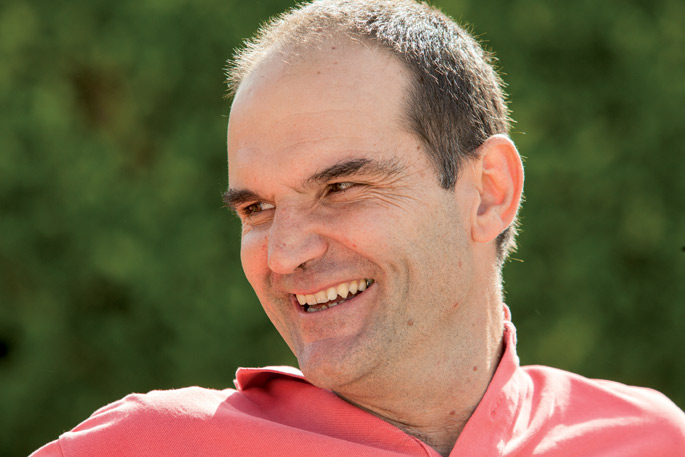
The parents are from Madrid, but the father of the mother is from Sestao. Hence the Basque hobby?
Yes, I've had a relationship with Euskal Herria since I was young. The relationship with the language, however, would come later, since at that time very few people spoke in Basque in Sestao. When I was 15, one summer, I bought a book from Biscayan and I started studying on vacation. When I returned to Madrid, they asked me and told me that they were teaching in the Basque Country. At first I wanted to learn Biscayan, but at the time there was not the lecturer of dialects, just the lecturer of batua, and he convinced me to learn batua. Then, I confess, I learned it on my own and I settled that kind of debt.
A few days ago you participated in a course organized by the Etxepare Institute for those who want to learn Basque in foreign universities. What did you talk about?
It was a very practical seminar. My intention was to explain to the listeners how I think Euskera should be taught and all that surrounds it and, above all, how it should not be taught. I've given you some advice from my experience of these years.
What is to be done and what is not?
What should not be done is to root out the wrong views about the Basque country. Some of them are also widespread among the Euskaldunes, for example, that the Basque is very difficult or that the Basque verb is a very special issue. They're mere myths. Unfounded assessments of the origin of the Basque Country and its kinship should also be ruled out. In any case, the first idea is to be clear that it is not the same a university class as a session of the Language School or a Basque centre. In the latter, more work is needed on the practical aspect of the language in order to learn how to speak, but in the university we have to offer other teachings, making known the history of the language and how the language works from within. The risk is that all this is confused and, therefore, is often done in the Language School at the university. It is important to give importance to the practical Basque, but to the extent that it does not take more than a third of the time, for example. In addition, you can now learn any language via the Internet, wherever you live. There are very good resources available to everyone.
Euskaltzale and lover of Slavic languages.
I made my thesis in Czechoslovakia. The subject was the Basque language, with regard to the sentences relating to the comparison between the Romanesque and Slavic languages. A curious subject that nobody cares about, but there I saw the treasure. I became fond of the Czech. During the two years I was there, I started doing translation work to bring Czech literature closer to Basque readers: Kundera, Hašek, Škvorecký… That gave me tremendous joy.
What conclusions did you draw from that comparison?
In short, I found that the hypothesis is that the Basque relations and the relative sentences of the Romanesque and Slavic languages are very different, but the speakers of the Romanesque and Slavic languages are approaching the Basque model. In Basque you only need a “n” to do the corresponding one. It's the most cost-effective model, and many speakers are getting closer to doing something like that, because of the language economy. To give an example: more and more people say “that is the man I live with” rather than “that is the man I live with”.
But that's just wrong in the oral language, in the writing, right?
What is wrong and what is good? Everyone has their way of speaking. I believe that everything must be accepted in the oral language. In the letter we have to look at that, yes, but in the oral everything is fine, because the main objective is communication. We have to be completely free. I know that at the university level this is not very well seen and that some colleagues would tell me what they are and what they are five, but I don't care. What we sometimes do in writing is make language difficult, and in the oral language, on the contrary, make it easier as far as possible. The Basque language gives us some examples of this linguist. In many things, I give great value to the Basque country, in terms of ease.
Other examples?
For example, they say that the Basque verb is difficult because it has it. I always say that I see it the same in the Indo-European languages: in Spanish, in English… For example, “Take it”, it is nor- angro, but people do not give it that oppressive name. It seems that it's something that people are told to scare and that they don't learn. My message is the opposite: Euskera is nothing special and works like all other languages.
Why has Euskera lasted until today?
I believe that for two main reasons: for having had a very solid refuge in very isolated spaces (hamlets, seaports…) and for the flexibility of the Basque country, like any other language, to take words from other languages. So much relationship has served him to survive. If it hadn't been so flexible, it would have disappeared.
Do young people speak more and more in Euskañol?
We sometimes criminalise young people by the constant passage from one language to another. That in linguistics is called code alternation, and I find that very good. If you feel comfortable like this, go ahead. They've invented a kind of Creole language, and I, as a linguist, can't say anything against it. Another thing is that it should be used in writing in an examination, for example. That cannot be admitted in any way.
Itsaso, with your 8-year-old daughter, do you always speak Basque?
Yes. I do everything in Basque and he answers me in Spanish.
So, as in many families here.
Yes. Well, it's different. Here, especially in Gipuzkoa and Bizkaia, the psychiatric problem I see on many occasions is that the Basque parents speak Spanish among themselves and then force the children to speak in Basque. Because children are consistent, they don't understand why they have to do what their parents don't do.
Do we have to give serious messages so that people wake up?
Yes. I know that there are people, like Kike Amonarriz, who are trying to send messages that are much more optimistic than mine, and that too is necessary. They are right when they tell us that we are not so positive that we do not achieve anything with our attitude. It is true, but unfortunately there are some reasons for pessimism. A balanced diagnosis must be made. The family data are the ones that most concern me: sending the children to models in Euskera, that all the members of the family are Euskaldunes, and yet the parents speak Spanish among them. These are absurd situations. Well, over there, Marianton!
So, do you need a Amonarriz, but also a Carlos Cid?
Yes, it is. It is all very well what it says, but I would not say it. My perception is that for some Euskera is charged with symbolic value and I believe that languages are much more important than any symbol. I find the situation very worrying, but I like more what is happening in Navarre than in the CAV. The experiences I met through the Nafarroa Oinez initiative were very enriching and rewarding.
You are a good communicator and that proves it very well in the tertulias of the Basque Country.
Thank you! I will give you a first: I have been told that next year we will continue for the fifth year with Xabier Amuriza and I with Manu Etxezortu in that evening. For me, this has become a vice. At first I felt violent and now I realize that Xabier is almost not allowed to speak.
Tertulias, interviews… You are becoming more and more known in the Basque Country.
Yes, thanks to Nafarroa Oinez. Four years ago, we were met in Iruñea by foreigners who taught Euskera around the world, and thanks to this initiative I gradually entered the media world.
What do you think about initiatives like Nafarroa Oinez?
Bringing foreigners who are in love with the Basque country was a very wise decision, because the Basques are taught in some way what language they have and that there are people from outside who love the Basque country. Now I am critical: I see that in Euskal Herria for some Euskera has become an excuse for some parties. They say they love the language, but on a daily basis they choose Spanish. Looking at it from the outside, I don't understand.
I think I would suffer a lot if I lived here. I would be furious because here the situation is totally irregular, there is no bilingualism, there is absolute diglosia. I do not say that I like Euskera, I simply say that I enjoy speaking in Euskera and with that I am consistent. People go to Korrika great, but the most important thing is the language in which they speak in Korrika, even in the days before and after Korrika.
Where do the students from your university come from?
Mostly Spanish and many Erasmus. These are, in my view, the best. It's about what kind of training they come with.
In a way, you're also an Euskera ambassador in Madrid. Are you asked a lot of questions?
According to and in what climate. In open environments, I proudly say what my profession is. When the environment isn't that open, I'm more careful. For example, the carnage that sells me meat is a facha. In the butchery there are five or six giant Spanish flags that barely let the meat see. He once asked me what I was doing, and I told him I'm a philologist. It's over. I know she doesn't know what that is, but I don't have to give her any more explanations, because she always gives me very good meat.
Once again, I had to have surgery and we were about to enter the operating room, when, after anesthesia, the doctor asked me what I was doing. “I teach Basque” I told him. “That’s no use at all,” he replied abruptly, and I explained to him, I don’t know where to draw the capacity or the strength: “But it’s wonderful for me to mortgage the mortgage.” Sometimes there is a huge lack of respect and even pressure. When the students told me the things they had to listen to, especially before, I found it very painful. Some people were told at home not to continue on that, that they had to clean their brains. In recent times this has almost disappeared and in Madrid I feel more resentment for Catalonia than for Euskal Herria. The truth is that speaking against Catalonia in Madrid is very old.
You have a good selection of translations from Czech to Basque.
I did a lot of literary translations, mostly until about eight years ago. I started in 1993 with Amodia comic by Milan Kundera. Then I made the adventures of the good soldier Švejk of Jaroslav Hašek in the World War, the bitter world of Josef Škvoreckha and the intolerable lightness of the Existence of Milan Kunder. Translate from Basque to Spanish City of madmen of Javi Cillero and in recent months I have been translating another literary book: Along with Ricardo Pichel Gotérrez, we have translated to Galician the Final Victory of Iban Zaldua (2012 Euskadi Prize for Literature in the category of children and youth literature), which will be published in September. As a translator, I also entered the advertising world by translating television commercials into a Madrid company. It was a very interesting experience.
Wouldn't Kaiku be yours? “We’re all kaiku”… Do you remember?
No! But that's what I thought about doing this. I was doing a great job and I couldn't make any mistakes. It's a careful, well-paid job, much better than literature.
Karlos Cid Abasolo (Madril, 1963ko abuztuaren 20an). Hizkuntzalaria, Madrilgo Unibertsitate Konplutenseko irakaslea. 15 urterekin euskara ikasteari ekin zion bere kabuz. Duela hogeita bost urte hasi zen euskara irakasten Madrilgo Euskal Etxean eta Hizkuntza Eskolan. 2007tik Euskal Filologiako irakaslea da unibertsitate horretan. Bertan egiten den EuskalComplu kultur egitarauaren koordinatzailea da eta hamaika sustapen ekimenetan parte hartzen du, Madrilen egiten den Korrika Txulapoan, esate baterako. Hizkuntza eslaviarretan espezialista izanik, hainbat literatur lan itzuli ditu txekieratik euskarara. Etxepare Institutuko ohiko kolaboratzailea da eta Euskadi Irratiko tertuliakide Xabier Amurizarekin batera, azken bost urteotan.
“Japonieraz, euskaraz bezala, erlatiboa izenaren ezkerrean doa, baina han ez dira sentitzen erlatibozko perpaus laburrak egitera behartuta, buruan ez dutelako beste hizkuntza boteretsuago bat bidea markatzen diena. Lasai ederrean 50 hitzeko erlatibozko perpausa egin dezakete. Hemen euskaldun batek halakorik egingo balu, jendeak Ertzaintzara deituko luke segituan”.
“Hemen elebidun bizi nahi izatekotan egunero borroka egin behar duzu eta hori ikaragarri neketsua da jendearentzat. Hori gertatzen da, neurri batean, euskaldunen artean ere alproja asko daudelako. Euskara ez da maitatzen euskara maite duzula esanez. Hobe da hori ez esatea eta egunerokoan praktikara eramatea”.
“Euskaldunek kosmobisio propioa dutela esatea polita da eta saltzen du, baina zertan datza? Hor daude hainbat teoria euskarari buruz, Oteizarena kasu. Niri oso ipuin polita iruditzen zait baina ipuin bat da, azken finean. Fikzio handi batean oinarritutako teoria, errespetu guztiarekin. Exotismoak saltzen du, Europako hizkuntza zaharrena hitz egiten duzula esatea oso ongi gelditzen da ligatzeko, adibidez. Baina prestigioa eta sendotasuna ez zaio hortik etorriko. Hainbeste informazio mugitzen den aro honetan jada ez da ia ezer exotikoa gelditzen. Sentitzen dut, baina euskara ez da exotikoa eta euskaldunak ez gara exotikoak. Nahiago nuke exotismo gutxiago eta egoera linguistiko orekatuagoa izatea”.
“Tamalez gogorra da, baina Euskal Herrian lau haizeetara zabalduko bagenu iragarki bat esanez euskaraz hitz egitea debekatuta dagoela, erabilera handituko litzateke. Hau esanda badakit batzuek madarikatuko nautela, baina argia beti piztuta eduki behar dugu, erlaxatu gabe”.
We are seeing more and more spelling errors in the writings of social networks, not only of young people, but also of the media. Some have become so common that they hardly hurt their eyes.
In this way, we can read in Spanish many things like: "You lose a dog," "It'll be that or k... [+]
Euskaltzaindia's motto is "ekin eta jarrai" ("ekin eta jarrai"), the outlawing of Euskaltzaindia. I don't know why the Academy wasn't outlawed, all three words appeared on its logo. The allegations have been made with less - and (those of one age remember the cassette of The Mondragon... [+]
Euskararen biziberritzea Ipar Euskal Herrian jardunaldia antolatzen du ostiral honetan Baionan Euskaltzaindiak. Euskararen alde egiten dena eta ez dena eztabaidatzeko mementoa izango da. Eragileak eta politikariak bilduko dira egun osoan.
In a one-hour commute to the workplace, I am accompanied by the car radio. On yesterday's journey, I had the opportunity to enjoy a short story program, as the last port of the road, full of curves, began in Karrantza. Short legends, yes, of few words, but stories of great... [+]









